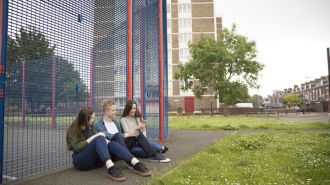- Our studies
- Our research
- Publications and resources
- Data access and training
- About
- News
- Events
- Get in touch
- Join our mailing list
Welcome to our news and blogs section. Here you’ll find the latest developments and insights from across our longitudinal studies.
Growing Up in the 2020s is the country’s first comprehensive long-term study tracking adolescents’ development and educational outcomes following the Covid-19 pandemic.

Teens from ethnic minority backgrounds and deprived neighbourhoods were particularly at risk of being exposed to high levels of air pollution during childhood, with potential long-term impacts on their health.

Data from the 1970 British Cohort Study (BCS70) Age 51 Sweep are now available to download from the UK Data Service.

Increasing access to parks and gardens may not be enough to help teenagers in urban areas get a healthy amount of sleep.

Private school pupils in England no longer perform better in GCSE English, Maths and Science than their state school peers from similar backgrounds.

Two fifths of 32-year-olds in England want children – or more children, if they are already parents – but only one in four of them are actively trying to conceive.

Rates of obesity, high blood pressure and high cholesterol are lower among British adults in midlife compared to their counterparts in the US.

Young people from more deprived neighbourhoods have to wait up to 15 minutes longer for accident and emergency (A&E) treatment than their more advantaged peers with similar healthcare needs, according to new findings from Next Steps.

People who begin smoking by the age of 16, and have experienced a challenging childhood, are more likely to find it harder to give up than those who started smoking later and had not experienced the same problems.

Graduates who will be drawn into making repayments under new student loans reforms are more likely to be from marginalised groups or in precarious work, writes Dr Charlotte Booth.
Ryan Bradshaw
Senior Communications Officer
Phone: 020 7612 6516
Email: r.bradshaw@ucl.ac.uk